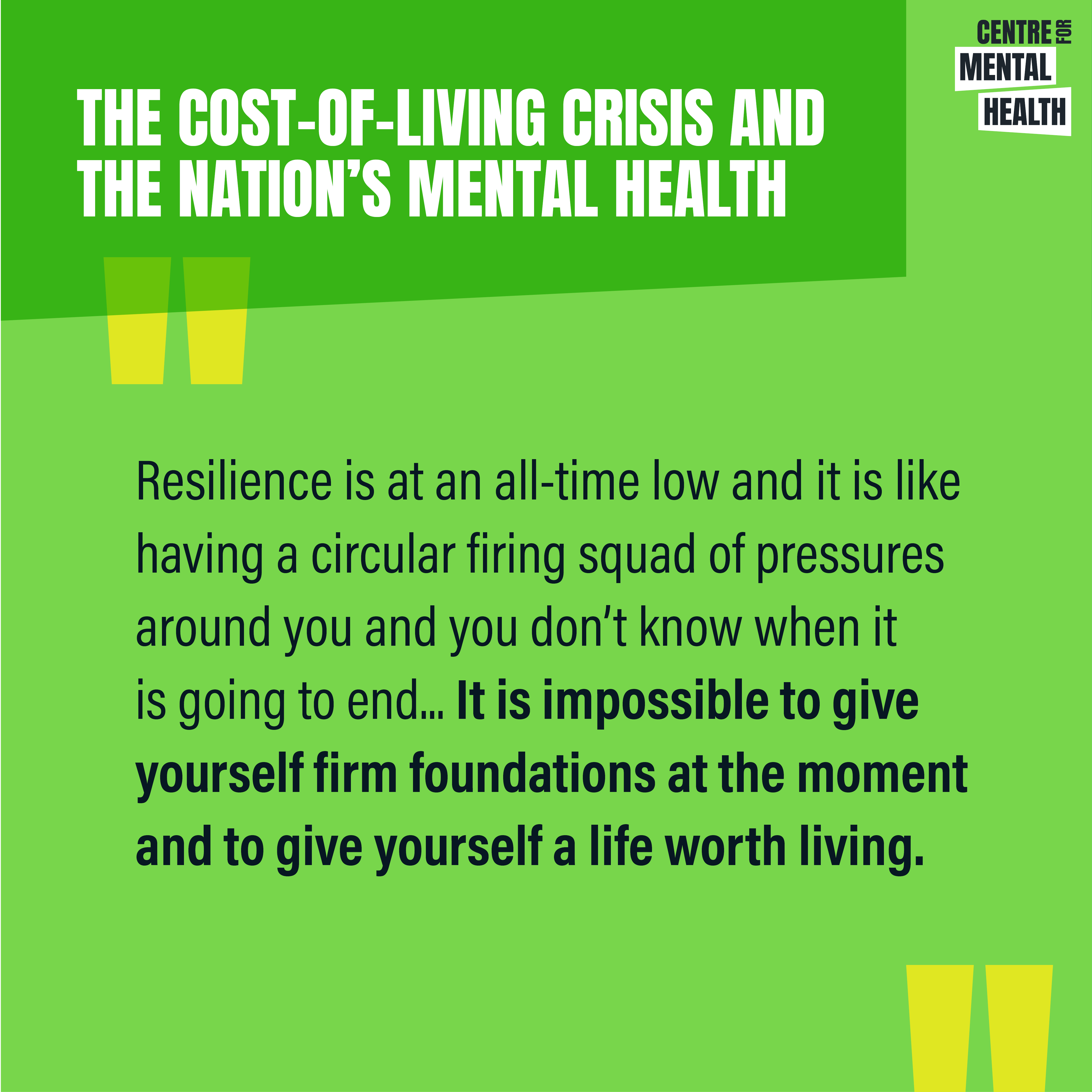The cost-of-living crisis and the nation’s mental health
Frederico Cardoso, Edward Davie, Nick Treloar, David Woodhead and Andy Bell
The cost-of-living crisis has had a profound impact on people with mental health problems, with many struggling to get by day-to-day at the expense of their health.
Just living and coping draws together research commissioned by Mind to explore the impact of the cost-of-living crisis. The Centre’s researchers heard from 500 people across England and Wales, many of whom already had mental health problems.
84% said the crisis had made their mental health worse, with the biggest impacts among those living in the deepest poverty.
Participants described how the strain of rising bills, skipping meals and working longer hours in low-paid jobs led to severe anxiety, isolation and hopelessness. The research also highlights how the crisis is affecting people’s sleep, their ability to connect with loved ones and their access to healthy food, all driving poorer mental and physical health.


The effects of the crisis may be felt for some time to come. For many, it risks a legacy of missed opportunities (in education and career options), hopelessness about the future, loneliness and isolation.
We’re calling on the Government and the NHS to act now, by:
- Requiring all mental health services to offer people money, housing and welfare advice
- Ensuring reforms of the private rented housing sector are equally effective for all renters
- Increasing benefit payments and the national living wage to boost the incomes of those in greatest poverty
- Implementing evidence-based access and waiting time standards for mental health care
- Maintaining and extending help to reduce the costs of basic services (such as energy bills) for those with the least money
- Continuing to expand Individual Placement and Support employment services
- Ensuring mental health support is provided close to home to reduce travel costs for service users.





